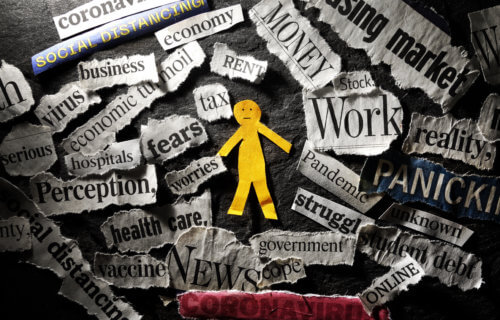BRISTOL, England — An international study reports that Republican members of Congress are increasingly sharing news from dubious sources, in comparison to European politicians. Conducted by researchers at the Graz University of Technology (TU Graz) in Austria and the University of Bristol, the study says Republican Congress members keep sharing more and more links to websites dubbed “untrustworthy.”
Remember when you had to wait for the morning paper or evening news to catch up on current events? Nowadays news sources online are a dime a dozen, and many are questionable at best when it comes to trustworthiness and objectivity. Even so, biased or outright fabricated news stories are routinely seen, shared, and discussed by tens of thousands of users.
Many U.S. politicians have large followings on social media, and it’s widely acknowledged that what politicians share online goes a long way toward shaping public opinions and perceptions. With all that in mind, researchers say their findings are especially timely considering the U.S. midterm elections are less than two months away.
“The amount of untrustworthy information shared by politicians on social media is perceived to be increasing. We wanted to substantiate this with figures, so we analyzed millions of original tweets by politicians from the USA, Great Britain and Germany,” says first study author Dr. Jana Lasser, Complexity Researcher from TU Graz, in a statement.
Over 3.4 million tweets posted by politicians between 2016 and 2022 were analyzed for this project. More specifically, 1.7 million tweets from members of the U.S. Congress, 960,000 tweets from British MPs, and 750,000 tweets from German MPs were included. Links to outside websites in those tweets were compared with a database provided by media watchdog NewsGuard. The company evaluates the credibility and transparency of news websites according to a rigid set of journalistic criteria covering the website’s ownership, funding, credibility, and transparency practices. For example, StudyFinds was graded a 100/100 by NewsGuard.
Republicans sharing content from untrustworthy sources has picked up in recent years
Ultimately, that analysis resulted in the observation that Republican members of Congress have shared significantly more links to websites classified as “untrustworthy” over the years. Moreover, in comparison to 2016-2018, the amount of dubious links being shared by conservative politicians has doubled since 2020. The percentage of links to untrustworthy websites shared by Republicans more than doubled between 2016-2018 (2.4%) and 2020-2022 (5.5%).
“In general, members of parties in the right half of the political spectrum in all countries studied share more of these links – but only Republicans show this significant increase. In the other countries, the share remains stable,” Dr. Lasser explains.
Overall, Republican Congress member share roughly nine times more untrustworthy links as Democratic members of Congress. For reference, only 0.4 percent of links shared by Democratic Congress members pointed to untrustworthy sites.
Meanwhile, European politicians are much less likely to share links to untrustworthy sites. Even among European conservatives, only 0.25 percent of links shared by British Tory politicians and 0.18 percent of links shared by MPs from the Christian Democratic Union of Germany (CDU) and the Christian Social Union in Bavaria (CSU), a center-right Christian-democratic alliance, were deemed untrustworthy. The only European political party whose social media activity resembled U.S. Republicans was Alternative for Germany (AfD), a right-wing populist political party.
“Repeating the analysis with a second, comparable database also produced very similar results. In such analyses, it is important to use different assessments of the credibility of news sources in order to exclude bias or partiality,” Dr. Lasser adds.
“Politicians are part of the educated elite; their behaviour is a kind of compass of what is socially acceptable and what is not. When people in politics increasingly post misinformation or news from sources that are not very trustworthy, I think that is very problematic,” concludes corresponding study author Professor Stephan Lewandowsky, Chair in Cognitive Psychology at the University of Bristol. “Despite their high social standing, it is therefore important to take information shared by politicians critically and to question the sources.”
The study is published in PNAS Nexus.


Yeah, like the MSM is trustworthy. LMAO
“untrustworthy sources”… anyone with an open mid realizes that the mainstream media has an agenda that they push and are not just interested in reporting unbiased news. Many consider the mainstream media to be among those “sources” considered to be untrustworthy.